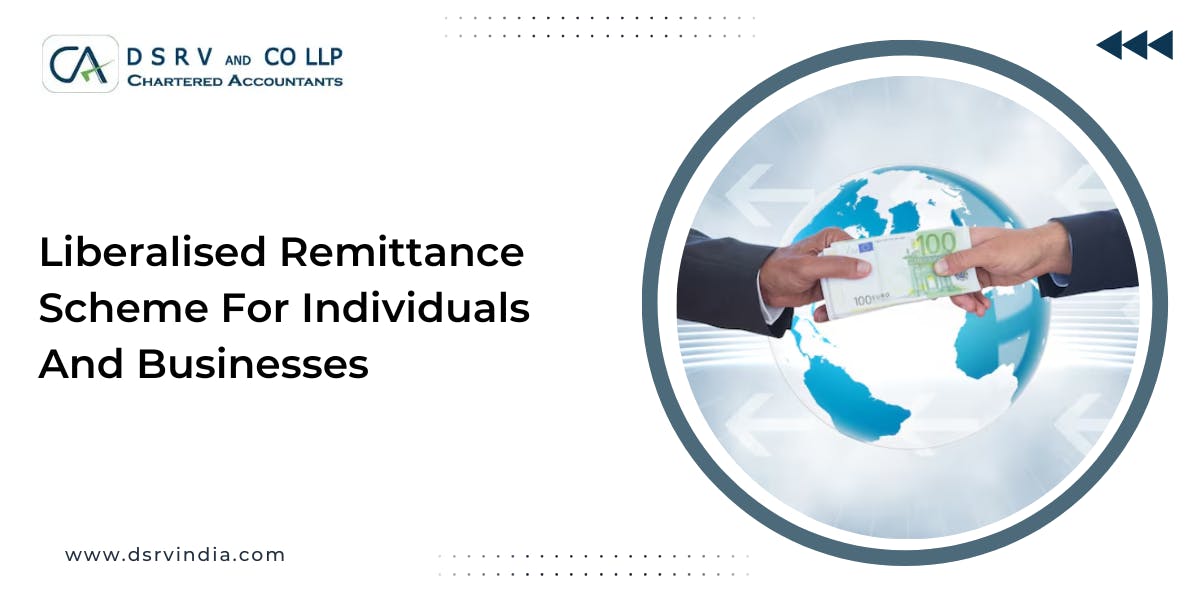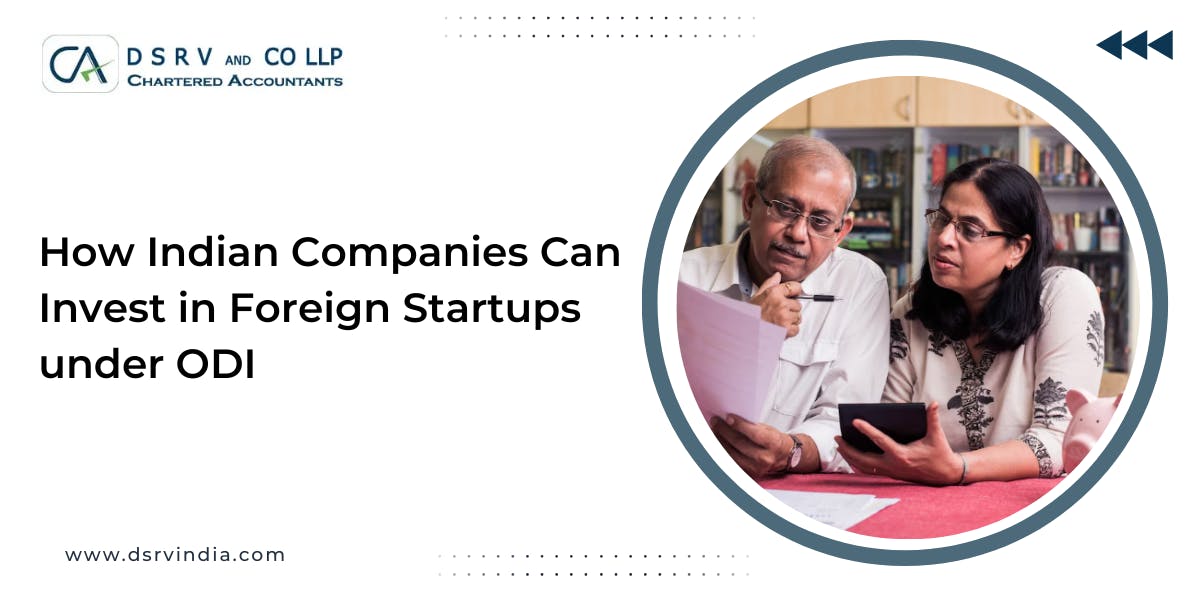Key features of the scheme
- Annual limit: Under LRS, Indian residents can remit up to $250,000 per financial year.
- Permitted transactions: Includes investments in shares, property, and debt instruments abroad.
- Simplified process: No prior approval is required from RBI for remittances within the limit.
- Flexibility: Funds can be used for multiple purposes without separate permissions.
Feature Description Limit $250,000 per financial year Approval No prior RBI approval needed Usage Multiple purposes allowed Beneficiaries Individuals and select businesses.
Eligibility Criteria for Individuals
- Indian residents aged 18 years and above
- Minors are eligible for the scheme if they submit form A2 with a guardian's sign
- Corporates or partnership firms are not eligible.
Recommended: Global Business Expansion for Indian Businesses: Complete Guide
Benefits of LRS for Individuals
1. Simplified Cross Border Transactions
The LRS significantly streamlines the process of cross border transactions for Indian residents. It eliminates the need for multiple approvals and complex paperwork, making international transactions more accessible and efficient.
2. Increased Foreign Investment Opportunities
LRS opens up a world of investment possibilities beyond Indian borders. Individuals can now:
- Invest in foreign stocks and mutual funds (e.g., Apple, Tesla, Google)
- Purchase bonds issued by overseas entities
- Participate in global real estate markets
3. Easier International Travel And Property Purchase
The scheme provides greater financial flexibility for:
- Carry more foreign currency for your trips
- Use international debit/credit cards without restrictions
- Purchase property abroad for personal use or investment
💡 Example: Planning to buy a vacation home in Dubai? 🏡 You can use LRS to invest in overseas real estate without needing RBI approval.
4. Simplified Process for Overseas Education Expenses
LRS makes funding overseas education much easier. Parents and students can now:
- Transfer tuition fees directly to foreign universities
- Cover living expenses without complex paperwork
- Pay for books, accommodation, and other study-related costs seamlessly
No more complex approvals or delays, LRS has made funding international education more efficient!
5. Streamlined Gifting and Donations to abroad
LRS simplifies the process of supporting loved ones or causes internationally:
- Sending monetary gifts to relatives abroad
- Making donations to international charities
- Supporting global causes and initiatives
These benefits collectively help Indian residents to gain greater financial freedom and explore financial opportunities abroad. As we move forward, we will examine what the LRS means for NRIs.
Advantages for Businesses
1. Simplified Overseas Expansion
The Liberalised Remittance Scheme (LRS) offers businesses a streamlined approach to international expansion. By allowing easier fund transfers, companies can:
- Set up foreign subsidiaries with reduced bureaucracy
- Invest in overseas projects more efficiently
- Acquire foreign assets without complex approval processes
This simplification accelerates global growth strategies and reduces administrative burdens.
2. Enhanced Global Market Access
Businesses can participate in international trade through:
- Global trade fairs and exhibitions
- Foreign marketing campaigns
- Setting up overseas sales offices
3. Easier Foreign Currency Transactions
Businesses benefit from smoother foreign currency operations under LRS:
- Simplified forex management for international trade
- Reduced currency conversion costs
- Easier handling of foreign currency-denominated contracts
4. Improved International Business Relationships
LRS fosters stronger global business ties by:
- Enabling quicker payments to international partners
- Facilitating joint ventures with foreign entities
- Supporting cross-border collaborations and knowledge exchange
These advantages collectively enhance a company's competitiveness in the global marketplace. With LRS, businesses can operate more efficiently on an international scale, opening doors to new opportunities and partnerships. Next, we'll explore the eligibility criteria and limits set under the LRS framework.
LRS Eligibility and Limits
1. Who Can Use the Scheme
The Liberalised Remittance Scheme (LRS) is available to a wide range of individuals in India. Here's a list of eligible participants:
- Resident individuals (including minors)
- Hindu Undivided Families (HUFs)
- Sole proprietorships
- Partnership firms
It's important to note that the scheme is not available for corporations, trusts, or other types of entities.
2. Current Remittance Limits
Under the LRS, eligible individuals can remit up to a specified amount per financial year. The current limits are as follows:
3. Permitted and Restricted Transactions
The LRS allows for a variety of transactions, but also imposes certain restrictions. Here's an overview:
Permissible Transactions
The Reserve Bank of India (RBI) has established clear guidelines for outward remittances under the Liberalised Remittance Scheme (LRS). Here's a list of permissible transactions:
- Private visits to foreign countries
- Gift or donation
- Going abroad for employment
- Emigration
- Maintenance of close relatives abroad
- Medical treatment abroad
- Studies abroad
- Overseas education
- Foreign travel
- Investment in foreign securities
- Purchase of property abroad
Restricted Transactions
It's crucial to note that certain transactions are not allowed under LRS:
- Margin trading
- Banned or restricted magazines
- Participation in money laundering activities
- Remittance for trading in foreign exchange
- Purchase of lottery tickets
- Remittance for margin or margin calls to overseas exchanges/counterparties
- Remittances for the purchase of FCCBs issued by Indian companies in the overseas secondary market
4. Documentation Requirements
To utilize the LRS, individuals must provide specific documentation:
- LRS declaration form (A2 form)
- Valid passport
- PAN card
- Purpose code as per RBI list
- Address proof
- KYC documents
- Source of funds documentation (e.g., bank statements, income tax returns)
These guidelines ensure transparency and prevent misuse of the LRS facility. Adherence to these rules is essential for smooth transactions and compliance with Indian foreign exchange regulations.
What does LRS mean for NRIs and their bank accounts?
The LRS scheme is for residents of India, therefore, all remittances of transactions take place in their savings accounts. Non-resident Indians cannot have Indian savings accounts. This means that they are not allowed to remit funds from India. However, they have the permission to transfer funds from overseas accounts such as NRO, FCNR and NRE accounts.
Impact on NRI Bank Accounts
The Liberalised Remittance Scheme (LRS) has significant implications for Non-Resident Indians (NRIs) and their bank accounts. While the scheme primarily applies to resident Indians, it indirectly affects NRIs in several ways:
- Increased Inward Remittances: LRS allows resident Indians to send money abroad more easily, which can benefit NRIs receiving funds from India.
- Investment Opportunities: NRIs can potentially receive more investments from resident Indian family members or business partners.
- Simplified Fund Transfers: The scheme streamlines the process of transferring funds between resident Indians and NRIs.
NRO Account Considerations
NRIs should be aware of how LRS impacts their Non-Resident Ordinary (NRO) accounts:
- Amount Transfer Limits: While there is no limit under liberalised remittance scheme to the amount you can transfer from NRE and FCNR accounts, there is a limit of $10,000 in NRO accounts.
- Tax Implications: Transfers from NRO accounts under LRS may have tax consequences for both the sender and recipient.
Tax Implications of LRS
1. Income Tax Considerations
Individuals must be aware of the liberalised remittance scheme tax implications associated with their remittances. To understand more complicated processes such as GST registration in Gurgaon, you can reach out to the top GST consultant in Gurgaon. The tax treatment depends on the nature of the transaction and the purpose of the remittance. Here's a breakdown of key tax considerations:
- Remittances for personal expenses: Generally tax-free
- Investment in foreign assets: May attract tax on returns if long-term
- Education expenses: Eligible for tax benefits under Section 80E
- Medical treatment abroad: May qualify for deductions under Section 80DDA
2. TCS (Tax Collected at Source) on LRS Transactions
The government has introduced TCS on LRS transactions to ensure tax compliance. Here's a quick overview:
3. Reporting Requirements
It's crucial to report foreign assets and income in your tax returns:
- Disclose foreign assets in Schedule FA of ITR
- Report foreign income in the appropriate schedules
- Maintain documentation of all LRS transactions
How to Use LRS : Step-by-step Guide For Individuals
- Determine eligibility and purpose
- Choose an authorized bank
- Complete LRS application form
- Submit required documents
- Receive approval and transfer funds
To use the Liberalised Remittance Scheme (LRS), individuals should follow these steps:
- Verify eligibility as a resident Indian
- Identify the purpose of remittance (e.g., education, investment)
- Select an authorized bank offering LRS services
- Fill out the LRS application form (A2 form)
- Gather necessary documents (PAN card, proof of address, etc.)
- Submit the application and documents to the bank
- Await approval from the bank
- Once approved, initiate the fund transfer
How to Use LRS : Process for businesses
For businesses, the LRS process differs slightly:
- Confirm eligibility as a registered Indian company
- Determine the purpose of remittance (e.g., overseas expansion)
- Choose an authorized bank for LRS transactions
- Complete the required forms (Form A2 and others as applicable)
- Prepare supporting documents (company registration, financial statements)
- Submit the application package to the bank
- Obtain necessary approvals (may include RBI clearance)
- Execute the fund transfer upon approval
Authorized Banks and Financial Institutions
Authorized institutions for LRS transactions include most major Indian banks and select foreign banks operating in India. It's crucial to choose a bank with experience in handling LRS transactions to ensure smooth processing. Some banks may offer additional services such as foreign currency accounts or international debit cards to complement LRS usage
Read More: A Guide: Form 15CA and 15CB for Cross-Border Payments
Conclusion
The liberalised remittance scheme offers NRIs living outside India a convenient way to receive funds from their family or friends. This scheme is helpful for individuals since it allows them to receive transaction for many crucial purposes.














